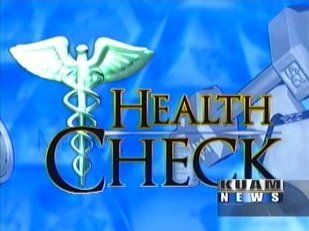Suicide fifth leading cause of death on Guam
It's important to recognize the signs and symptoms of someone who is contemplating suicide and know what you can do to help them. It's an issue that officials say needs to be addressed.

Guam - The Department of Mental Health and Substance Abuse has released some alarming statistics when it comes to the number of suicide deaths on the island. It's important to recognize the signs and symptoms of someone who is contemplating suicide and know what you can do to help them. It's an issue that officials say needs to be addressed.
Suicide is the fifth leading cause of death on Guam, and according to Mental Health data analyst Dr. Annette David, it's a significant problem. "Suicide is probably one of the silent epidemics on island," she explained. "What we did when we looked at the data is that we are very grateful for having Dr. Espanola, who helped us look at this data. We discovered that suicide death on Guam, if you adjusted for the population, it is more than two times more than what you see in the mainland."
According to a 2009 study of suicide on Guam, family disputes and interpesonal relationship conflicts are most often implicated as the immediate circumstance surrounding a suicide attempt or death. The research also concluded that 18% of suicide related incidents are repeat attempts. "On average on Guam," she continued, "about one person dies of suicide every two weeks, but it's a silent epidemic because you don't hear so much about it.
"It is something that usually happens among young people. Over 60% of our suicide deaths are under the age of 30, which is very surprising because when you look at the Asian region, suicide deaths tend to happen with those over the age of 50."
So what do you look out for? Warning and danger signs include:
- Threatening to hurt or kill oneself or talking, about wanting to hurt or kill oneself
- Looking for ways to kill oneself by seeking access to firearms, available pills, or other means
- Talking or writing about death, dying, or suicide when these actions are out of the ordinary for the person
- Feeling hopeless
- Feeling rage or uncontrolled anger or seeking revenge
- Acting reckless or engaging in risky activities - seemingly without thinking
- Feeling trapped - like there's no way out
- Increasing alcohol or drug use
- Withdrawing from friends, family, and society
- Feeling anxious, agitated, or unable to sleep or sleeping all the time
- Experiencing dramatic mood changes
- Seeing no reason for living or having no sense of purpose in life
For more information you can call the Mental Health and Substance Abuse, or if you need someone to talk to their hotline numbers is 647-8833 or the National Suicide Prevention Lifeline at 1-800-273-TALK (8255).

 By KUAM News
By KUAM News